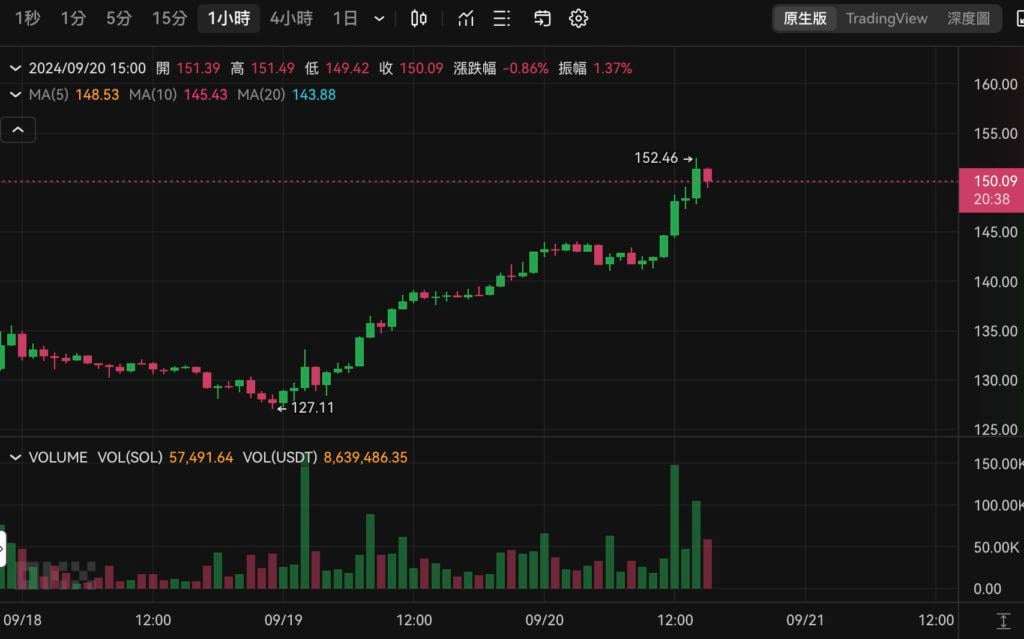Driven by the continued surge of Bitcoin in the cryptocurrency market (it once exceeded $64,000 at noon), most Altcoin also rose rapidly. Among the top ten tokens by market capitalization, Solana was the strongest, reaching $152.46 at more than two o'clock earlier, rising more than 8% in the past 24 hours.

Analyst Egene Ng Ah Sio, who has more than 70,000 followers on X, commented:
If this is indeed the start of a sustained rally, I will never in my lifetime see SOL trading below $150 for an extended period of time.
We found strong support at $120, which has been tested multiple times and held steady, while alternative L1 competitors rallied more than 2x, while SOL hovered around these lows.
To me, this is the final confirmation that a bull market is coming.
Will the market value of SOL exceed ETH in the future?
At the currently held Solana BreakPoint event, Cuy Sheffield, head of the international payment giant VisaCrypto department, said that 65% of stablecoin transactions on Solana are less than $100, while Ethereum cannot frequently conduct low-value transactions and is not cost-effective. It implies that the current transaction fees of Ethereum are still not user-friendly enough.
Just yesterday, Kyle Samani, co-founder of Multicoin Capital, also said at the Token2049 conference that the market value of SOL will exceed Ethereum in the future, and gave his reasons:
- The Ethereum roadmap plans to advance transactions from Layer1 to Layer2, and this plan is being implemented smoothly. From the current perspective, more than 90% of Ethereum's transactions are executed on Layer2, but this also results in ETH being unable to effectively capture the transaction value.
- On-chain transactions are the most important indicator of the blockchain. Over the past year, there have been times when Solana’s on-chain transaction volume was higher than Ethereum’s, and there were weeks when it was lower than Ethereum’s. However, Solana is currently roughly on par with Ethereum in terms of on-chain transaction volume.
- Solana’s token extensions provide many of the features needed by Wall Street institutions, payment companies, or any major asset issuer. Only when these features and related construction are ready can regulated finance appear on the chain at scale, and this is the case with Ethereum. It is basically impossible to achieve on the market.







